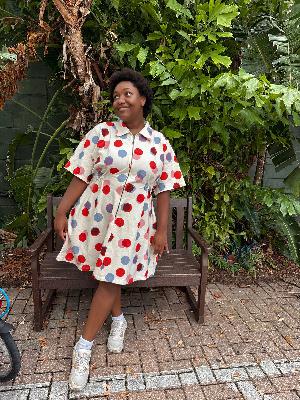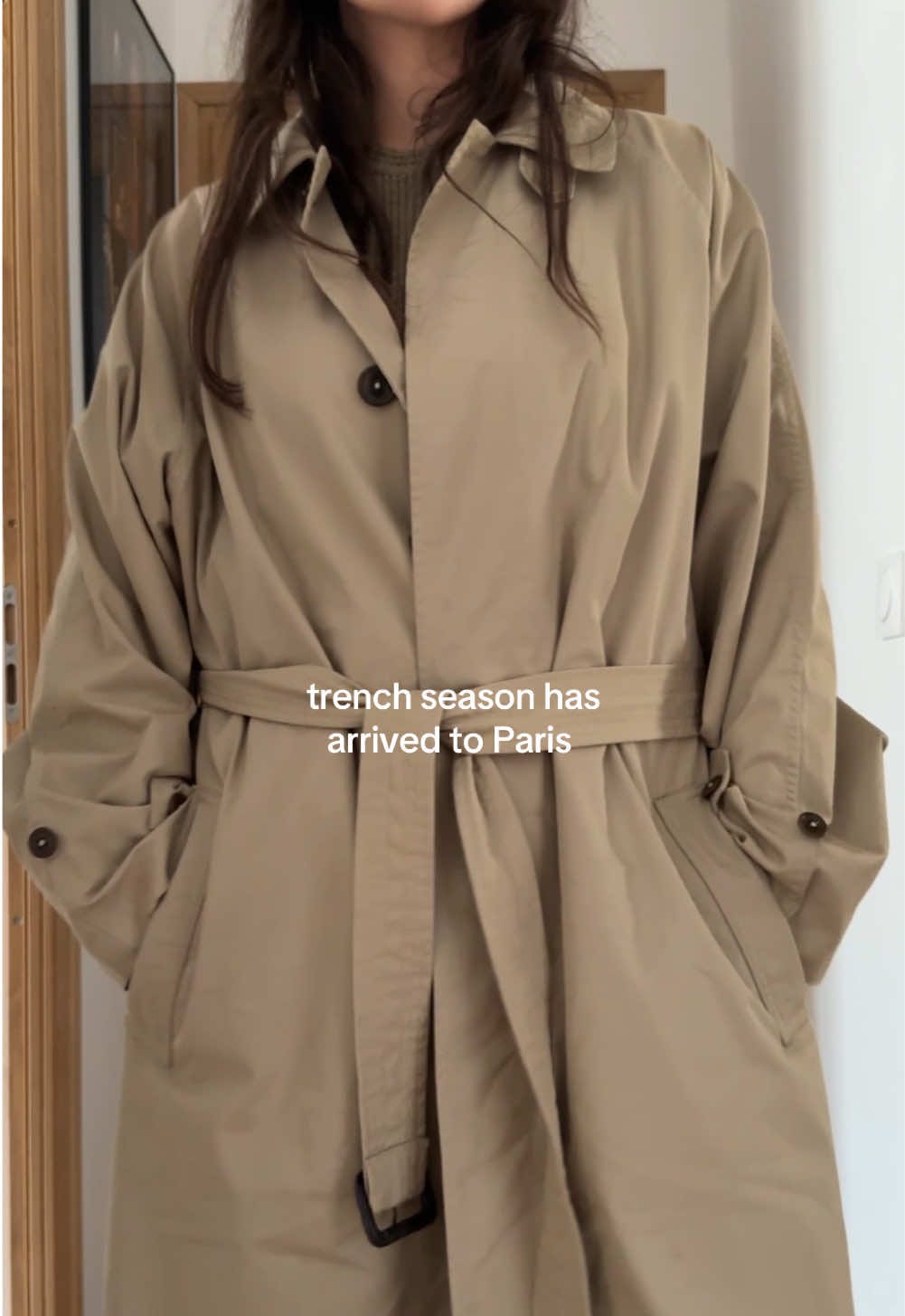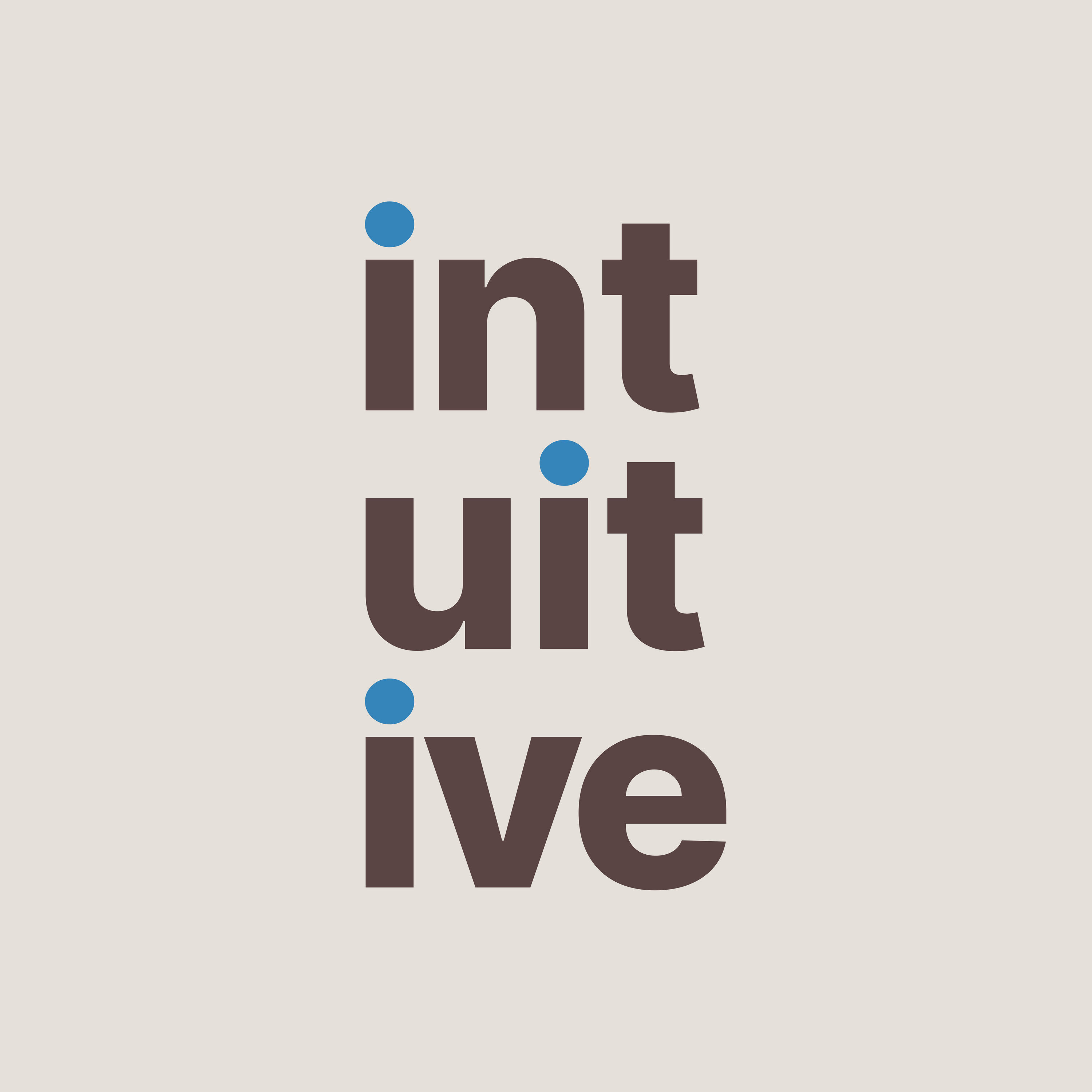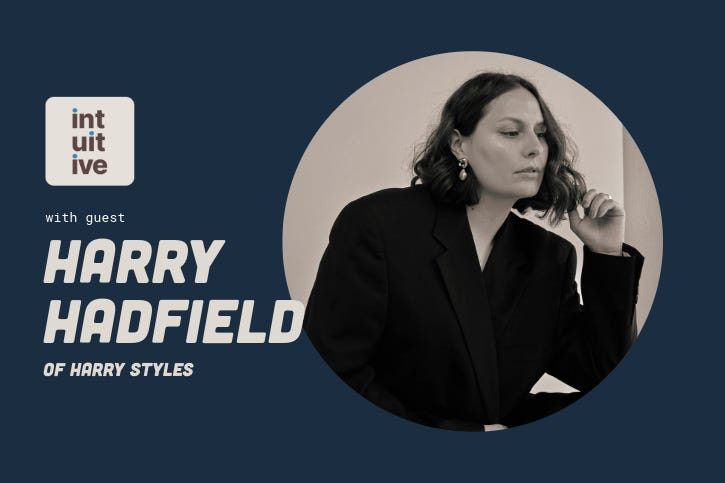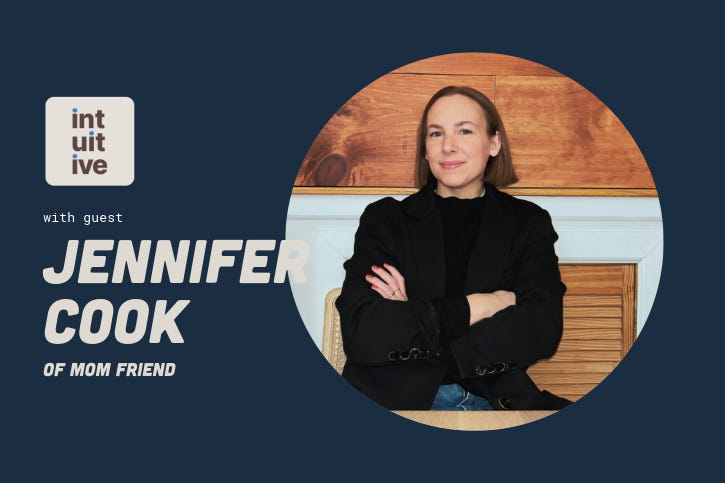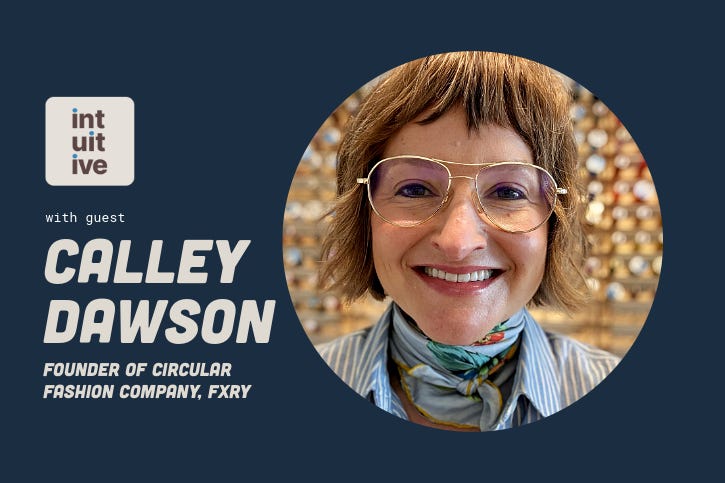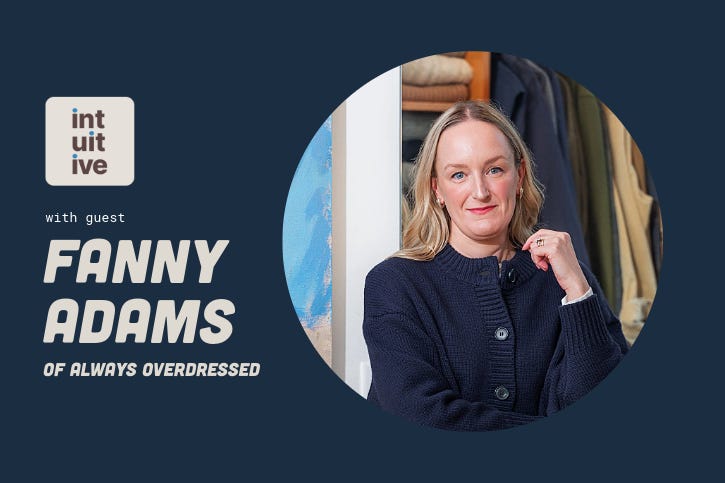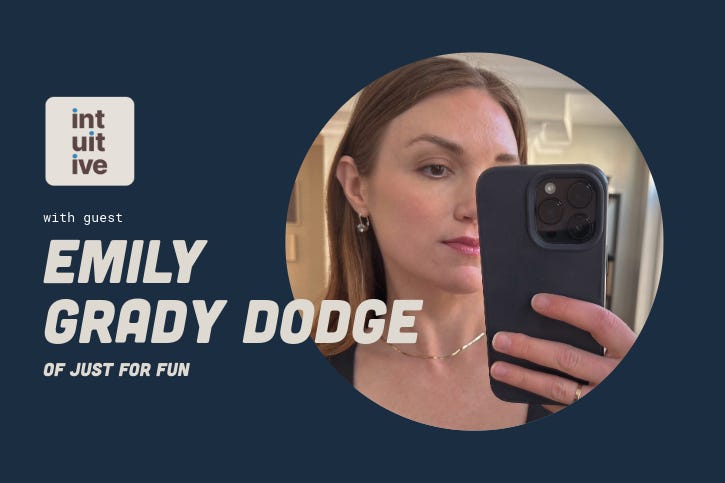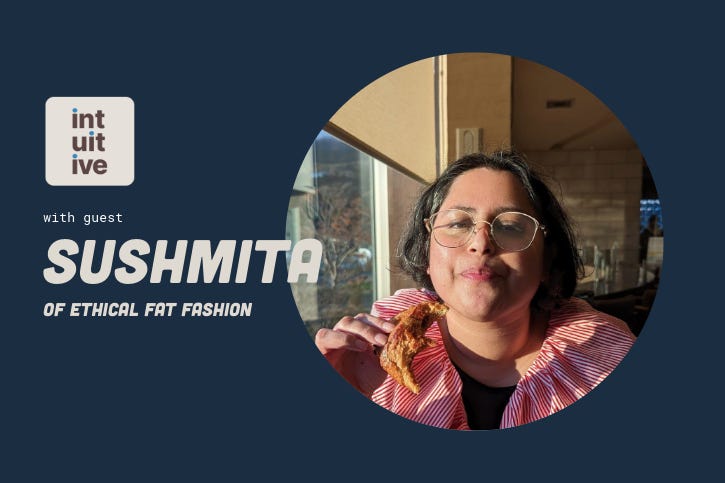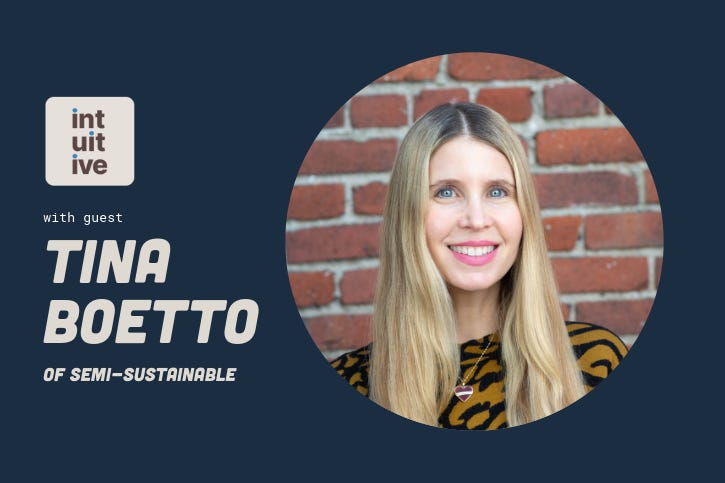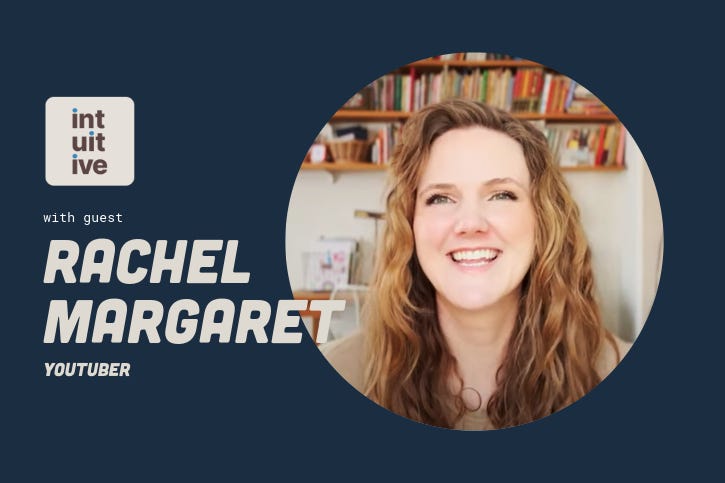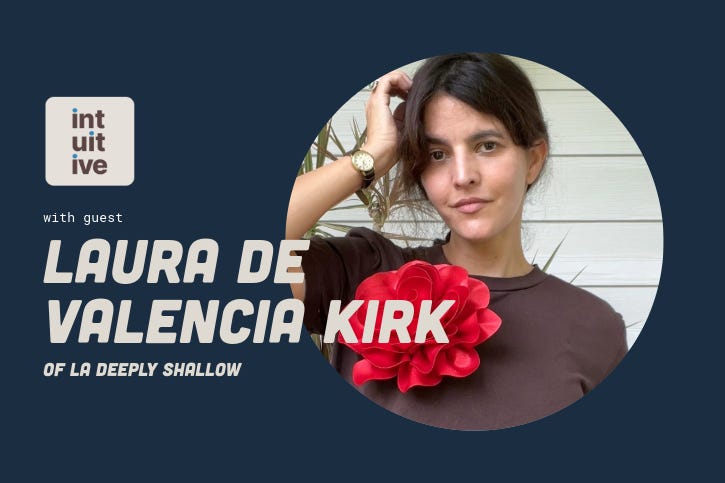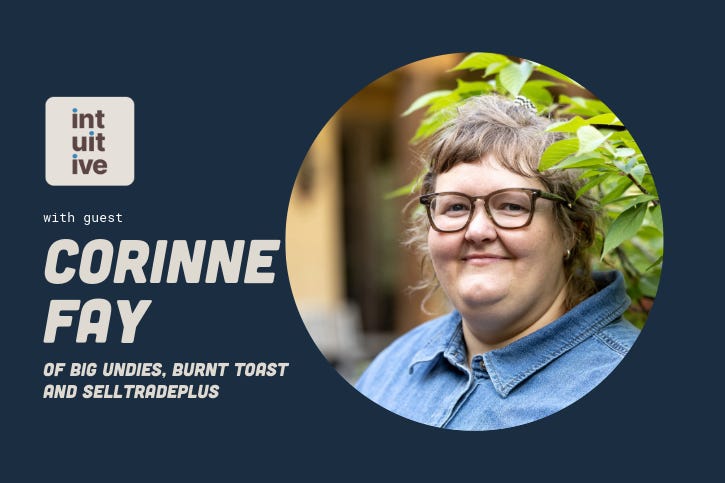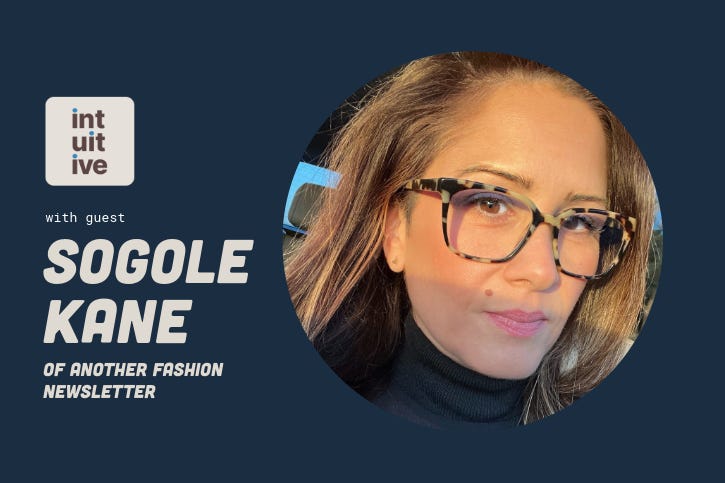Episode 06. What would I wear if I didn't judge my body? with Kori Rae Kovacs
Description
Registered Nurse, veteran, wellness coach, author, and public speaker (phew!), Kori Rae Kovacs BSN RN joins me in conversation today. She shares wisdom from her personal and professional experience, actionable suggestions for how to move past shame to dress authentically, and a new question to help us all figure out how we want to dress.
Episode Transcript
This transcript has been edited for clarity.
Maureen: As a life and wellness coach, you specialize in inspiring others to embrace unique strengths, essentially matching our outsides to our insides. I love this concept. Can you share a little bit of a glimpse into your approach?Kori: Yeah, absolutely. I came up with this phrase about, you know, bringing your insides outsides, or bringing this like matching component of what you feel who you are on the inside, who you are at a soul level, and really getting the opportunity to share that out in the world. I feel like I came across this concept. I'm not really sure where, but I developed it kind of became a mantra for me when I realized that I have this beautiful being inside of me that is just wanting to come out. I had really gone through a really challenging time in my life, and I felt like. I was kind of hiding myself, and when I started reconnecting with this person that I am, you know, this person who has grown through resiliency through things that have been challenging. Then suddenly I realized, Wow, she's a really cool person. I want to bring her out into the world. And so I started matching my outsides to the person that I was feeling and getting to know on the inside. And when that happened I just feel like I was like coming out of a cage. Suddenly my wings, just like burst out, and I was able to really show up in the world as the person that I believe that I am.Maureen: That's incredible. And you talk about this idea of, you know, you've been through these difficult situations, and it almost sounds to me like that inner confidence came first, and then the outside happened second, do you have a perspective on, you know which need? If you can, fake it till you make it? Or does the inner confidence come first? Does it kind of depend? Or at least just speak from your perspective.Kori: Yeah, that's such a great question, because I think we live in a day and age where they talk about, you know, faking it till you making it or putting this front on the outside, but really not feeling confident on the inside. I know I share that story a lot with my audience is that I believe that confidence comes from your self-trust within yourself. It's not something that you can just snap and say, Oh, I feel confident today I'm going to go out and do this thing. I think that feels really forced. And so to me, it's about building trust with yourself getting to know who you are, and then expressing and taking action from that step that truly brings the confidence out in you, because you can feel confident, maybe in in some things, you know, but not in other areas. And I truly believe that you know, if you look up confidence in the, in the etymology. I'm a huge etymology nerd. So if you look at confidence, what that means, it really means a reliance or deep trust in something or someone, and when we talk about confidence about you having a deep trust and reliance in yourself, to be able to go out and be this person that you know that you can be so when you start building that self trust. Then that's really where the confidence starts to grow.Maureen: How have you built self trust, personally?Kori: That's such a great question. I you know a lot of it had to come from a place of compassion. Like, of being human. And I had gone through a really hard time in my life. I became a single mom, and my career took a shift. I was going to school to become a nurse during the pandemic, and things just really fell apart in my life. Trajectory as I was approaching, and I felt a lot of shame and a lot of guilt about the direction of where I was going, and in addition to that, I had gained like pounds. And so there was all these things that had happened, and I really lost my confidence and my faith in myself to be able to go out into the world and show the world who I was. So I feel like the moment that I decided to offer compassion for this place, and in the survival mode that I had been in and what had happened to me in my life. Suddenly it opened up space for me to actually get to know who I was, and when that happened, I started taking steps by journaling and meditating and moving my body in a way that felt genuine to me and that consistency of really finding out who this person was. Suddenly. Now I was like, oh, you're actually a pretty cool kid. I really kind of like you. And so like, day by day, that trust just started to build. And then I was able to go back out into the world and show, you know, come out in my style and come out, you know, and start a business, and and all of these things that honestly, a couple of years ago I wouldn't have had the courage to do.Maureen: I mean, it makes me feel somewhat emotional, you know, talking about that thick layer of shame that just can sit, sit on us, and make it so difficult to like crack through into the person that we actually are. And just I so relate to that. I want to talk more about this idea of self-compassion, and maybe you can talk about that with, sharing a little bit about more about how your relationship with your body has changed, you know, being a veteran, being a registered nurse, a parent life coach, you know, and then also that that kind of weight gain that you experience. Can you tell us a little bit more about? You know your relationship to your body, and how that's changed over time.Kori: Oof! That has been a challenge. I feel like my whole life. You know I was a dancer. I was a dancer when I was growing up, and I just loved moving my body. But as I went through puberty suddenly I became a very curvy girl. I had, I mean, overnight, you know, by the time my freshman year I was a double d, and I had big hips and big thighs. I kind of have a you know, curvy but athletic, muscular body, and it didn't fit the mold of being a dancer. As a matter of fact, my my junior year of high school. I was not. I was not allowed to join the pom squad, because they literally told me I my body was distracting like that. My boobs were too bouncy that it was. It was too sexy like you think about that. And I'm like, Oh, my God!Right, and that there's these messages that just kept telling me that my body was wrong. The very first night I was in Boot camp you brought up being a veteran. The very first night I went to. They made me stand at attention for 45 minutes because they didn't know what to do with me, because I had. I had scored a perfect score on the Asvab, which means I could basically do whatever job in the military I wanted, but I was 2 pounds under their weight limit, and they were like.The first words that were told to me is like Skaggs. That was my maiden name with Skaggs. They're like “Skaggs. You are lazy. That's your problem.”Maureen: Oh!Kori: So, yeah, so there was this and that carried with me. Lazy. You're lazy because they looked at my body, and they said, You know they looked at my weight. They looked at my body, even though I was. Oh, my gosh! I was 146 pounds, by the way, like, really, this is ridiculous here. But they said that I just I didn't care about my body, and that I was lazy, and that message was carried around for a decade, and I internalized all of these messages that my body was wrong, that I was. You know I was also hyper sexualized in in the military. And you know, experienced a lot of things that I shouldn't have had to go through because of that. And you know, after I got out suddenly, I realized I had a lot of feelings about my body, and they were not. They weren't good. They weren't good.
So then, you know, I really did have to come face the music a little bit about that relationship with my body, because it really was hurting me, and I didn't realize it. So when I came to that point of compassion. Suddenly I realized that relationship was so severely damaged. and I remember crying one day when I had this insight that my body was my soul's mate. I just had this beautiful concept that my soul came here to earth to express itself, to do its mission to, you know, whatever my soul came here to do, and that my body was here to support that. And so they literally are a team together. And I had been hating this other part of me, and it like I was almost crushing when I have remember, I remember just bawling my eyes out when I realized that. And so I decided from that day on that I was going to get to know who this souls mate was, who my souls may, who my body was, and that changed everything. That was years ago when that happened. And it just, everything changed after that.Maureen: Good for you, and I mean, I want to acknowledge to the trauma that led to the shame around your body right? Because it's not just that people were making these comments about your body. It was what they, what these comments meant about who you are as a person. This idea of laziness based on your physical appearance, which is, you know, so much driven by genetics, to begin with. [Editor’s note: and zip-code]Kori: Right.
Maureen: And then. But really like it wasn't just that they're commenting on your body. They're they're making it mean something about you. And that's how we get to thi

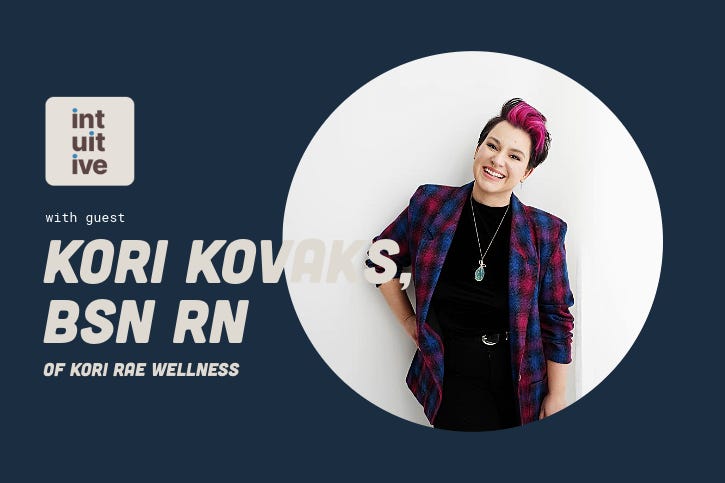
![Episode 24. Rambling in [Intuitive] Style, with Traci Landy Episode 24. Rambling in [Intuitive] Style, with Traci Landy](https://substackcdn.com/feed/podcast/2669400/post/177614968/9bbc5a3f73fab5e46b0a064fb5bff6b4.jpg)
